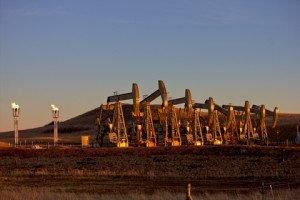History was made this week as the first woman is to appointed to lead a major U.S. exploration and production company.
Occidental Petroleum announced on Tuesday that their board approved the promotion of Vicki A. Hollub to Senior Executive Vice President of Occidental and President – Oxy Oil and Gas, responsible for operations in the United States, Middle East region and Latin America. Hollub will succeed CEO Stephen Chazen when he retires in 2016 and will continue to serve as president of Occidental's oil and gas operations during the transition period.
Ms. Hollub has nearly 35 years of experience in the oil and gas industry with over 33 of those years spent at Occidental. She had been involved in a variety of technical and leadership roles, both domestic and international.
“The board and I congratulate Vicki on her well-deserved promotion. After a thoughtful succession review, the board selected Vicki based on her strong track record of successfully growing our domestic oil and gas business profitably and efficiently,” said Mr. Chazen, President and Chief Executive Officer. “I look forward to working with her to prepare her for the CEO role and to stepping aside when she is ready to take it on.”
One day after the announcement, Occidental released its Q1 numbers showing production is up 13%. The total company average daily oil and gas production volumes increased by 72,000 barrels of oil equivalent (BOE) to 645,000 BOE from 573,000 BOE in the first quarter of 2014.
Related: Occidental Petroleum Reduced 2015 Capex by 33%
Occidental’s North Dakota assets encompass approximately 303,000 net acres of oil producing and unconventional properties in the Williston Basin's Bakken, Pronghorn and Three Forks formations.
Read more at oxy.com





